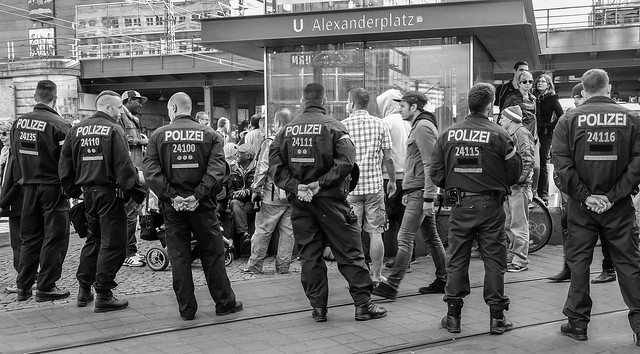Austria’s Alarming Crime Surge: Nearly Half of Suspects Are Foreign Nationals, Sparking National Debate
Austria’s latest criminal police report has revealed a staggering statistic: nearly 47% of crime suspects in 2024 were foreign nationals, despite non-Austrians making up just 20% of the population. The findings have reignited a fierce political and cultural debate over migration, youth crime, and the long-term costs of mass immigration.
Foreign Nationals Disproportionately Represented in Crime
Out of 335,911 suspects investigated in 2024, 46.8% were non-Austrian, with the highest numbers coming from Romania, Germany, and Syria. Syrian nationals alone saw a 30% year-over-year increase in crime involvement, particularly among minors—a demographic that has seen exponential growth in criminal activity.
Complicating the picture, naturalized immigrants are not classified as “foreign” in Austria’s crime databases. This statistical quirk means the true proportion of foreign-born suspects is almost certainly higher than reported, drawing attention to the limitations of official crime data and the impact of naturalization policies on public transparency.
Youth Crime Soars, With Syrian Minors Leading Spike
The most explosive trend involves children aged 10 to 14, whose reported crimes nearly doubled to 12,049 cases. Of those, 48% were non-Austrian, and Syrian minors alone accounted for nearly 1,000 cases—a tenfold increase since 2020.
Teen offenders aged 14 to 18 contributed to another 34,806 criminal incidents, often involving property crimes such as vandalism, car break-ins, and burglaries. Police officials describe many of these minors as “system crashers”—chronic offenders responsible for dozens of crimes per month. One individual alone was linked to over 1,200 offenses.
Government Pushes to Lower Age of Criminal Responsibility
In response to the troubling data, Interior Minister Gerhard Karner has called for legislation to lower the age of criminal responsibility, a proposal gaining bipartisan traction. Although no final decision has been made, even members of traditionally liberal parties like NEOS are expressing support for tougher policies targeting juvenile offenders.
“If 12-year-olds are repeatedly injuring others or themselves, we can’t just stand by,” said NEOS Deputy Mayor Bettina Emmerling, backing the push for expanded youth detention facilities.
Karner also proposed increasing parental fines for chronic truancy from €400 to €2,000, hoping to address the link between school absence and criminal behavior.
Migration and Crime: A Political Flashpoint
The report’s findings have become political ammunition for the right-wing Freedom Party (FPÖ), which is currently leading in national polls. Vienna FPÖ leader Dominik Nepp demanded the criminal responsibility age be lowered to 12 and blamed “open-border policies” for Austria’s escalating crime crisis.
ÖVP (Austrian People’s Party) chair Karl Mahrer joined the criticism, pointing to Vienna’s generous welfare policies and migration-friendly laws as a “magnet for criminality.”
The data also showed:
- 534,193 criminal cases reported in total, a 1.2% increase from 2023.
- Property-related crimes rose by 2%, driven by a 25% surge in vehicle and vending machine break-ins.
- Cybercrime declined by 5%, the first drop in two decades, attributed to improved public awareness.
The Policy Reckoning Ahead
Interior Minister Karner, whose party once championed open migration policies, now insists the status quo is untenable. The government is facing increased pressure to reform Austria’s criminal justice system, tighten immigration laws, and reclaim control over youth violence and foreign criminal networks.
As Austria grapples with this crossroads moment, the debate centers on one urgent question: Can a nation preserve internal security while maintaining liberal migration policies?
If the 2024 report is any indication, Austrian voters are demanding answers—and accountability.

